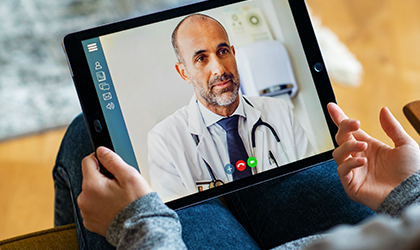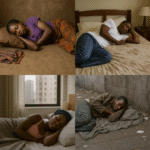Access to Clean Water and Sanitation in Africa

Access to clean water and proper sanitation is a fundamental human right and a cornerstone of public health. Yet in Africa, millions of people still struggle to obtain safe drinking water and hygienic sanitation facilities. According to UNICEF, nearly 400 million people in sub-Saharan Africa lack access to safe drinking water, while more than 700 million live without basic sanitation services. This crisis fuels the spread of waterborne diseases, undermines health, and limits social and economic development.
This article explores the health impacts of poor water and sanitation, the challenges communities face, and the strategies needed to ensure safe, sustainable access for all Africans.
The Health Impact of Unsafe Water and Sanitation
1. Waterborne Diseases
Cholera, dysentery, and typhoid are widespread in areas with contaminated water. Children are especially vulnerable, with diarrheal diseases being one of the leading causes of child mortality in Africa.
2. Malnutrition
Unsafe water contributes to repeated infections that weaken nutrient absorption, worsening child malnutrition and stunting growth.
3. Poor Hygiene and Sanitation
Inadequate sanitation facilities, such as lack of toilets and handwashing stations, lead to open defecation, which contaminates water sources and spreads disease.
4. Impact on Women and Girls
In many communities, women and girls bear the responsibility of fetching water, often walking long distances. This not only limits their education and economic opportunities but also exposes them to safety risks.
5. Healthcare Burden
Hospitals and clinics struggle to treat preventable diseases caused by unsafe water and sanitation, straining already limited healthcare resources.
Barriers to Clean Water and Sanitation in Africa
-
Rapid Urbanization – Growing cities often lack infrastructure to provide safe water and manage waste.
-
Climate Change – Droughts, floods, and desertification reduce water availability and increase contamination risks.
-
Poverty – Many rural and peri-urban communities cannot afford clean water solutions or improved sanitation.
-
Weak Infrastructure – Poorly maintained pipes, wells, and treatment plants contribute to unreliable supply.
-
Policy and Governance Gaps – Corruption, underfunding, and lack of long-term planning hinder progress.
Pathways to Solutions
1. Investing in Water Infrastructure
Expanding boreholes, water treatment plants, and piped systems ensures long-term clean water supply.
2. Community-Led Sanitation Programs
Empowering local communities to build and maintain toilets, latrines, and handwashing facilities fosters ownership and sustainability.
3. Affordable Technologies
Low-cost water filters, solar-powered pumps, and rainwater harvesting provide scalable solutions for rural and underserved areas.
4. Policy and Regulation
Governments must enforce stronger water management policies and allocate adequate funding for water and sanitation projects.
5. Public Education
Teaching communities about hygiene practices—such as handwashing with soap—reduces disease transmission dramatically.
Africa’s Opportunity
Despite the challenges, Africa has immense potential to solve its water and sanitation crisis. With abundant natural resources, technological innovation, and international support, the continent can accelerate progress. Initiatives like the African Development Bank’s “Water for All” programs are already driving change, but scaling efforts will require political will, cross-sector collaboration, and community involvement.
Conclusion
Access to clean water and sanitation is not just about infrastructure—it is about dignity, equity, and survival. By addressing barriers and investing in innovative, community-driven solutions, Africa can safeguard public health and unlock social and economic development. The time to act is now, because water is not a privilege—it is life itself.
Written by Fawzi Rufai, Medically Reviewed by Sesan Kareem



